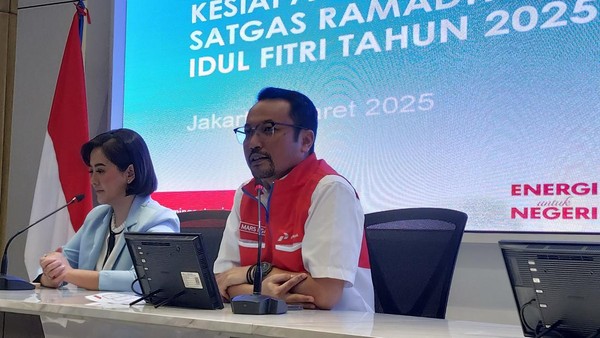As Eid al-Fitr approaches, marking the end of Ramadan, millions of Indonesians prepare for the annual "mudik" tradition—traveling to their hometowns to celebrate with family and friends. This mass movement significantly increases the demand for energy, particularly fuel and electricity. Ensuring a stable energy supply during Eid al-Fitr is crucial to support the heightened activities and maintain public satisfaction. This article explores the strategies and preparations undertaken by Indonesia's state-owned enterprises (SOEs) and the government to secure energy supply during this festive period.
Increased Energy Demand During Eid al-Fitr
The Eid al-Fitr holiday period witnesses a substantial surge in energy consumption. Transportation fuels, such as gasoline and diesel, experience heightened demand due to the increased number of vehicles on the road. Additionally, electricity usage rises as households engage in festive activities, and public places operate extended hours to accommodate celebrations. This spike in energy demand necessitates meticulous planning and coordination among energy providers to prevent shortages and ensure a seamless festive experience.
Strategic Measures by State-Owned Enterprises
To address the anticipated surge in energy demand, Indonesia's state-owned enterprises have implemented comprehensive strategies:
1. Fuel Supply Assurance
PT Pertamina, the national oil and gas company, has mobilized extensive resources to ensure an uninterrupted fuel supply during the Eid al-Fitr period. The company has prepared 353 tanker fleets, operating both domestically and internationally, to facilitate the seamless transportation of fuel and liquefied petroleum gas (LPG). Muhammad Baron, Corporate Secretary of Pertamina International Shipping (PIS), emphasized the company's commitment to maintaining fuel and LPG supply security through sustainable operations.
2. Electricity Supply Management
PT Perusahaan Listrik Negara (PLN), the state electricity company, has implemented measures to ensure a stable electricity supply during the festive season. Anticipating a 30% decrease in electricity usage during Eid al-Fitr compared to regular days, PLN has adjusted its operations accordingly. The company has established special task forces to monitor and manage electricity distribution, ensuring that any potential disruptions are promptly addressed.
3. Support for Electric Vehicles
With the growing adoption of electric vehicles (EVs) in Indonesia, especially during the Eid al-Fitr exodus, PLN has prepared for a significant increase in EV usage. The company anticipates a 500% surge in EV use during the festive period, reaching approximately 21,570 vehicles. To support this, PLN has enhanced the availability of charging stations along major travel routes, ensuring EV users have access to necessary charging facilities.
Government Initiatives to Enhance Energy Security
Beyond the immediate measures for the festive period, the Indonesian government has launched initiatives aimed at strengthening the country's overall energy security:
1. Boosting Domestic LPG Production
To reduce reliance on imports and enhance energy self-sufficiency, Indonesia plans to increase its liquefied petroleum gas (LPG) output by approximately 1 million metric tons annually. This initiative aligns with President Prabowo Subianto's commitment to achieving energy self-sufficiency amid global geopolitical uncertainties. The government is focusing on developing 15 gas fields capable of boosting propane and butane production to meet this target within three to four years.
2. Advancing Renewable Energy Integration
In line with global sustainability trends, Indonesia aims to increase its use of renewable energy as part of its new electricity supply plan for the next decade. The plan focuses on solar, hydro, and geothermal energy, aiming for 70% of the planned additional 71 gigawatts to come from renewable sources. This shift is expected to raise the renewable energy mix from 12% in 2024 to 35% by 2034.
3. Encouraging Private Sector Participation
The government seeks to involve the private sector in expanding the country's power capacity. Approximately 60% of the new power plants planned over the next decade are expected to be privately financed, with 70% of these relying on renewable sources like solar, wind, and potentially nuclear and hydrogen. This initiative aligns with President Prabowo Subianto's objective to hasten economic growth to 8% and retire all fossil-fuel plants within 15 years.
Conclusion
Ensuring a reliable energy supply during Eid al-Fitr is a multifaceted endeavor that requires meticulous planning and coordination among various stakeholders. Indonesia's state-owned enterprises, such as PT Pertamina and PLN, have implemented strategic measures to meet the heightened energy demands during the festive period. Additionally, the government's initiatives to boost domestic LPG production, integrate renewable energy, and encourage private sector participation reflect a comprehensive approach to enhancing the country's energy security. These efforts not only aim to support the immediate needs of the festive season but also contribute to Indonesia's long-term energy resilience and sustainability.
Read More






 Thursday, 05-02-26
Thursday, 05-02-26







